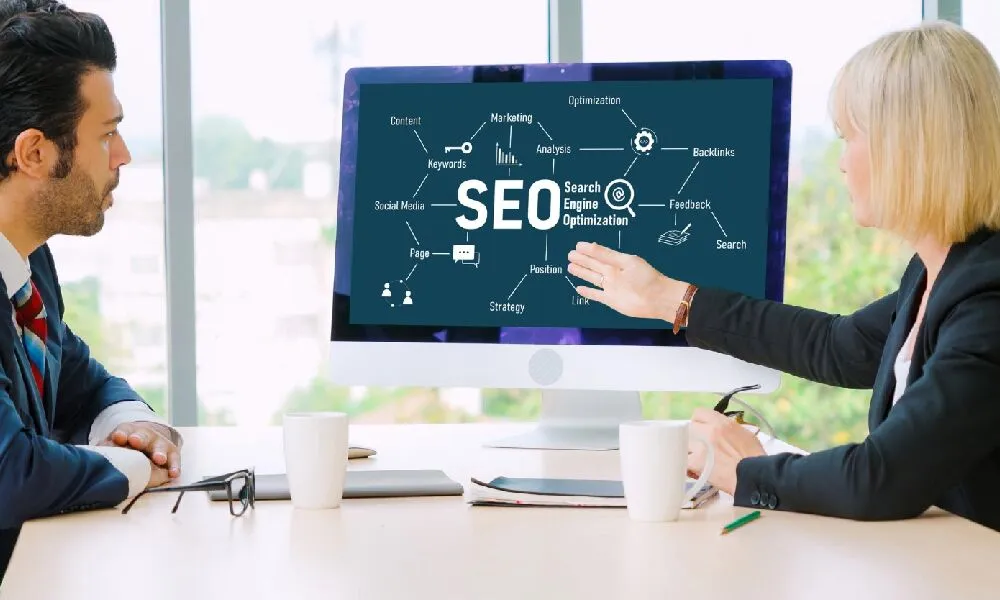The timeframe for SEO results as of 2024 is largely unchanged from years prior, however certain variables may have an impact on how quickly results appear. This is a current summary of average SEO timetables for 2024 and how long it should take a website to rank in search results: Results in the Short Term (1-3 Months): Technical Fixes: Immediate gains might result from the prompt fixing of technical problems including broken links, crawl errors, and mobile friendliness enhancements. On-page optimization: Quick effects on visibility and click-through rates (CTR) for pages that are optimized. Content Updates: Improving and updating already-existing content can hasten indexing and raise ranks. Local SEO (if applicable): Local search visibility can be increased really rapidly by optimizing Google My Business and local citations. Results at midterm (3–6 months): Keyword Rankings: As search engines identify optimized content, keyword rankings for targeted terms improve. Increased Organic Traffic: A consequence of better indexing and ranking is an increase in organic traffic. Building Backlinks: Start seeing how authority and rankings are affected by high-quality backlinks. Content Strategy: Fresh, high-caliber content can begin to acquire popularity and visibility. Mobile Optimization: Enhancements that are optimized for mobile devices result in higher rankings in mobile search results. Extended Duration (6+ Months): Established Authority: Consistent SEO efforts provide the website authority with search engines, which boosts its rankings for competitive keywords. Sustained Traffic: As the website exposure and authority grow, organic traffic will keep growing. Conversion Rates: As organic traffic gets more focused and involved, conversion rates rise. Competitive Keywords: Over time, rankings for extremely competitive keywords get better. Brand Visibility: A higher level of exposure and recognition of the brand due to the website increased prominence in search results.
Importance of SEO for Businesses
The process of improving a website to increase its exposure and ranking in search engine results pages is known as SEO, or search engine optimization (SERPs). To put it another way, its the process of improving the visibility of your website on search engines like Google, Bing, and Yahoo so that users who are searching for relevant terms or phrases are more likely to find it. Important SEO Components: Relevance: The most relevant results for users queries are the goals of search engines. SEO entails tailoring the content of your website to your target audiences search intent. This incorporates utilizing important catchphrases decisively all through your site pages, titles, and portrayals. Quality content is an important part of SEO. Original, valuable, and high-quality content receives higher rankings in search engines. This includes videos, infographics, articles, blog posts, and more. In addition to attracting visitors, high-quality content also encourages other websites to link to yours (backlinks), which is an important ranking factor. User Experience: When ranking websites, search engines take into account the user experience. A positive user experience is facilitated by factors such as site speed, mobile-friendliness, ease of navigation, and secure connections (HTTPS). Your SEO performance can be improved by optimizing these aspects. Backlinks: Backlinks connect your website to those of other websites. They go about as "demonstrations of approval" according to web search tools. Search engines learn that your site is reliable and authoritative when authoritative websites link to it. SEO relies heavily on the creation of high-quality backlinks. The term "technical optimization" refers to a variety of technical aspects of your website that have an effect on search engine visibility. Meta tags (titles, descriptions), headings (H1, H2, etc.), URL structures, and sitemaps are all part of it. Technical SEO guarantees that search engines can crawl, index, and comprehend the content on your website. SEOs goals are: Increase Organic Traffic: By ranking higher in search results, SEO aims to attract more organic (non-paid) traffic to your website. Improve Visibility: Higher rankings mean more visibility for your brand or business. Users are more likely to click on websites listed on the first page of search results. Build Authority and Trust: Consistently delivering valuable content and optimizing your site builds trust with users and search engines alike. Drive Conversions: Ultimately, SEO is not just about traffic but also about driving conversions—whether thats making a purchase, filling out a form, signing up for a newsletter, or any other desired action on your website. Importance of SEO: Cost-Effective: Compared to paid advertising, SEO can provide long-term, sustainable results without ongoing ad spend. Its an investment in your website organic growth. Targeted Traffic: SEO targets users who are actively searching for products, services, or information related to your business. This means higher-quality traffic with a higher potential for conversions. Competitive Advantage: In competitive industries, SEO can be a game-changer. Ranking higher than competitors can lead to more market share and brand visibility. In essence, SEO is a multifaceted approach that involves understanding your audience, creating valuable content, optimizing technical aspects of your website, and building relationships with other websites. Its an ongoing process that requires time, effort, and strategy but can yield significant benefits for your online presence and business success.
In the digital age, where online presence can make or break a business, Search Engine Optimization (SEO) has become not just a valuable tool but a necessity for businesses of all sizes. Heres a comprehensive look at why SEO is crucial for businesses: Increased Online Visibility: Search Engine Rankings: The primary goal of SEO is to improve your websites ranking on search engine results pages (SERPs). Higher rankings mean more visibility, leading to increased clicks and organic traffic. Brand Awareness: Ranking on the first page of search results builds brand awareness. Users are more likely to trust and click on brands they see at the top of search results. Targeted Traffic and Qualified Leads: Relevance: SEO helps target specific keywords and phrases related to your business. When users search for these terms, they are actively looking for what you offer, resulting in higher-quality traffic. Higher Conversion Rates: Targeted traffic means higher chances of conversions. Users who find your website through search engines are often in the “research” or “buying” stage of the customer journey. Cost-Effective Marketing: Long-Term Investment: Unlike paid advertising where you pay for each click, SEO is a long-term investment. Once you establish a strong organic presence, the traffic you receive is essentially free. ROI: SEO provides a high return on investment (ROI) compared to traditional advertising. Its a cost-effective way to drive sustainable traffic and leads. Credibility and Trust: Authority Building: Appearing on the first page of search results signals to users that your website is credible and trustworthy. People tend to trust organic results more than paid advertisements. Positive User Experience: SEO involves optimizing for user experience, such as fast loading times, mobile-friendliness, and relevant content. This leads to a positive impression of your brand. Beat Competition: Stay Ahead: In competitive industries, SEO can give you a competitive edge. Outranking competitors means capturing a larger share of the market and potential customers. Adaptability: SEO is not a one-time effort; it requires ongoing optimization. Businesses that stay up-to-date with SEO trends and algorithms can adapt to changes and maintain their position. Local and Global Reach: Local SEO: For businesses with physical locations, local SEO is crucial. It helps businesses appear in local search results, especially for “near me” searches. Global Market: Even businesses without physical stores benefit from SEO. It opens doors to reaching a global audience and expanding market reach. Insights and Data: Analytical Insights: SEO tools provide valuable data and insights into user behavior, keyword performance, and website traffic. This data can guide strategic decisions and future optimizations. Market Research: Keyword research in SEO provides insights into what users are searching for, helping businesses understand market demand and trends. Evolving Digital Landscape: Adapting to Changes: The digital landscape is constantly evolving, with search engine algorithms frequently updating. SEO helps businesses stay relevant and adapt to these changes to maintain visibility. In conclusion, SEO is not just about ranking higher on search engines; its about creating a seamless user experience, building credibility, reaching targeted audiences, and ultimately driving business growth. Businesses that invest in SEO position themselves for long-term success in the competitive online marketplace.






RSPL
Great post! Your timeline for SEO provides a clear and practical roadmap for anyone looking to improve their search engine rankings. It fascinating to see how SEO is a long-term game, requiring patience and consistent effort. Your breakdown of the different phases— from initial research and on-page optimization to ongoing content creation and link building— really highlights the importance of a strategic, step-by-step approach. I especially appreciated the tips on tracking progress and adjusting strategies. Looking forward to implementing some of these insights and seeing the results!